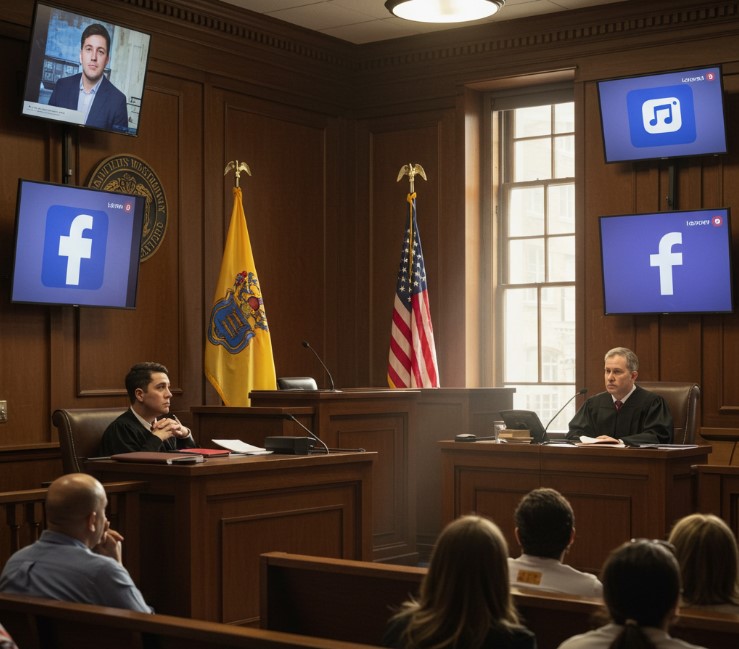As a mediator and arbitrator, I encourage the resolution of disputes by way of alternatives to an all-out battle in the courtroom. Our federal government has set up a procedure for resolving specific issues that may arise from vaccinations, for though it is well-known that vaccines have eradicated devastating illnesses and diseases in our country, there may be injuries that are occasionally caused by receiving them.
Although immunization has played a pivotal role in deterring disease outbreaks and pandemics in the United States, it is not a perfect science. Vaccinations are recommended for people of all age groups, from their first few years of life well into their golden years. Newborns are scheduled to receive the Hepatitis B shot within 12 hours of birth, and then an additional 47 injections before they are six years old. For everyone older than six months, the flu shot is recommended annually.
Unfortunately, in some instances, the recommended vaccines cause injuries. This is well-known and well-documented by the Government, who monitors the number of vaccine injuries, as well as the types of injuries caused by each named vaccine. In response to injuries caused by vaccines, Congress enacted the National Childhood Vaccine Injury Act of 1986, which created the Vaccine Injury Compensation Program (VICP), beginning on October 1, 1988. Initially, the law was enacted to compensate and assist babies who were injured by the DTP vaccine. However, over the years, the VICP has expanded to include several additional, specific vaccines and injuries for children and adults.
Due to the number of vaccine injuries, a specific Federal Court was granted jurisdiction over vaccine injury cases. All vaccine injury claims must be filed in the United States Court of Federal Claims (within the “Vaccine Court”) located in Washington DC.; although, you may not be obligated to appear in Washington, DC. Instead, some hearings may be held in the Federal Court in your local district, or the Court may allow you to appear via teleconferencing.
A claim in Vaccine Court is not a traditional lawsuit. Rather, it is based on a no-fault system of compensation. However, if your claim is denied in Vaccine Court, or if you do not agree with the award in Vaccine Court, you may be able to file a traditional lawsuit in a trial court after you resolved your claim in Vaccine Court.
The Vaccine Court is designed to compensate and assist vaccine injured people. For that reason, the Court pays attorney’s fees and costs on behalf of the claimants. This is unlike the traditional civil court attorney compensation structure that usually allows for attorneys to accept 1/3 of the award to pay their fees. In Vaccine Court whatever you recover, whether by settling or trying and winning your case, is compensation and assistance that goes solely to you or your child. You also do not pay your attorney if your claim is dismissed.
Anyone can file a claim on their behalf, or on their child’s behalf, in the Vaccine Court. You do not have to be a U.S. citizen.
You are also eligible to file in Vaccine Court if you received the injurious vaccine outside of the U.S. In those cases, you must show that you were a U.S. citizen in the military or a U.S. government employee; or if you received a vaccine manufactured by a company located in the U.S. and you returned to the U.S. within six (6) months after the vaccination.
Vaccine Injury cases involve medical and legal nuances that would be more easily handled by a vaccine injury attorney. In order to be eligible to file a claim, you must show with medical documentation that:
- You received the vaccination that you claim caused your injury, and
- The effects of your injury have lasted; either for more than six (6) months after you received the vaccine, OR resulted in a hospital stay and surgery, OR resulted in death.
There is a strict statute of limitations that applies to Vaccine Injury Claims. In order to be eligible to file a claim, you must do so within three (3) years from the date of first onset of your injuries, or two (2) years from the date of death, if a death occurred because of a Vaccine.
Guillain-Barré Syndrome, commonly referred to as GBS, is an autoimmune disorder in which the body’s immune system attacks its own peripheral nervous system. GBS is characterized by weakness and unusual sensations in the hands and feet which can then progress to the arms, legs, and the rest of the body over the course of days or weeks.
Cases of GBS have a wide range of severity. Some instances of the disease have been known to render muscles and entire limbs useless, temporarily or permanently. In others, the body’s most primary functions are jeopardized. The prognosis for GBS is generally good, however, as most make a full or nearly full recovery with the possibility of some residual weakness.
Guillain-Barré Syndrome affects an estimated 1 in 100,000 people, divided evenly between men and women of all ages. Symptoms have been reported to follow surgery, certain viral infections or contact with viruses, as well as some vaccines – such as the flu shot, the tetanus shot or any of its components, or the HPV vaccine.
What are the Symptoms of GBS?
Guillain-Barré Syndrome is known as a demyelinating disease. Specifically, it is a disease in which the immune system attacks the myelin sheath, a white coating which covers the peripheral nerves and facilitates the transmission of nerve signals to muscles.
When this protective coating is damaged, nerve signals to the muscles become weakened and confused, and the nerve endings are left vulnerable to permanent damage. This causes varying degrees of weakness and even immobility and paralysis. Signals from the body to the brain also suffer, which creates a “static”, “crawling”, or “pins-and-needles” effect, as well as numbness. These symptoms often begin in the extremities and then progress inward. If the syndrome becomes more advanced, it can severy interfere with blood pressure, motor function, and breathing, and can be fatal in such cases.
GBS and Vaccination
Guillain-Barré Syndrome occurs as an immune response only after a virus or bacteria invades the body, and vaccines work by administering an acellular or otherwise weakened version of a virus – it thus follows that GBS is a possibility with any similar immunization.
The flu shot is the most commonly administered vaccine in the United States, with about 130 million shots given each year, and is responsible for most cases of GBS reported following a vaccination. That said, there is data that suggests contracting influenza may put one at greater risk of GBS symptoms than getting the flu shot. It is important for you to weigh the risks and speak with a healthcare professional when deciding whether or not to vaccinate – but, due to increasing legislation against religious and philosophical exemptions from vaccinations, consumers may not have a choice in the matter for much longer.
Douglas J. Widman, partner at Davison·Eastman·Muñoz·Paone, P.A., handles private mediations and arbitrations as part of his wider practice in the Wills, Estates & Trusts department. He may be reached at 732.462.7170. Phyllis Widman (managing partner at Widman Law Firm in Atlantic City, NJ) contributed to this article. She is admitted to practice in the United States Court of federal claims to litigate matters in the vaccine court. Since the claims are filed in federal court, Ms. Widman can handle claims from any state in the country. No matter what state you live in, if you or a loved one was injured by a vaccine, reach out for a free consultation.













